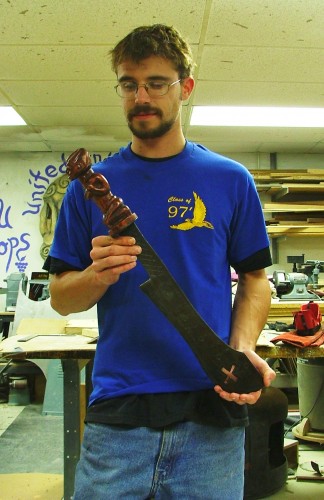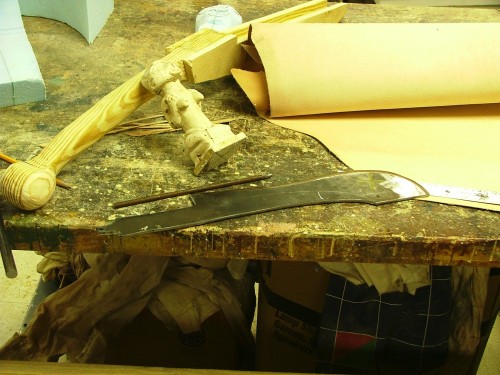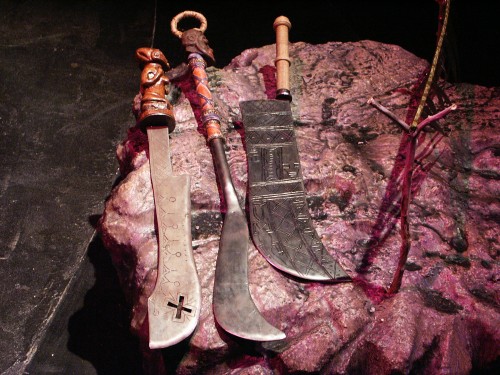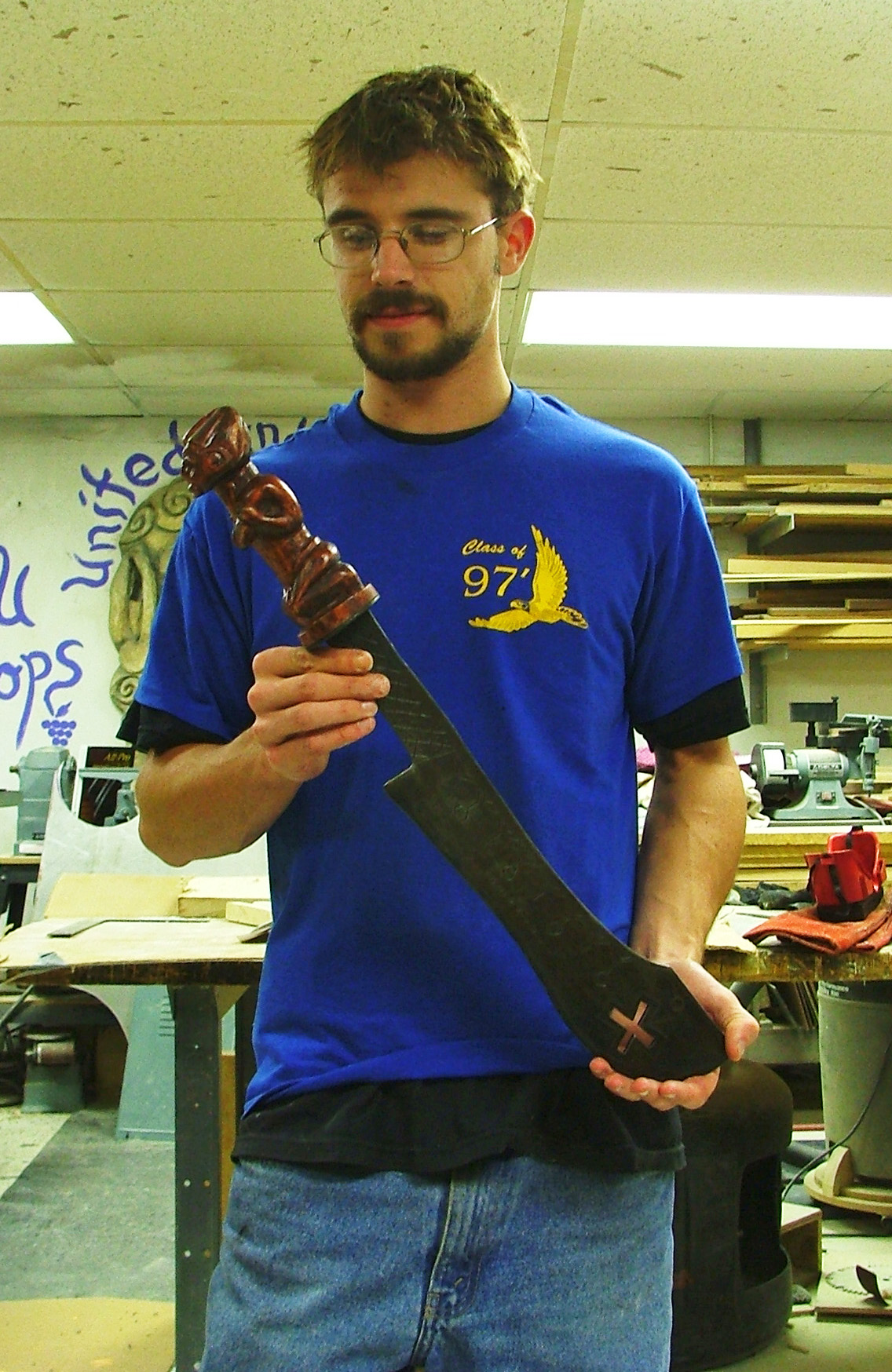I made this decorative Yoruban sword back in 2004, when I was attending Ohio University and had a lot more beard.

The show was called “The Gods are Not to Blame”, and it is a Yoruban retelling of the Oedipus Rex tale from Ancient Greece (the Yoruba people are one of the largest ethnic groups in Western Africa, with a cultural history of hundreds, if not thousands, of years). My future wife was the set designer on this show, and nearly all the props had to be constructed to be completely authentic; her design involved extensive research into Yoruban artifacts, furniture, and design.
This sword, while appearing like a tradition sword, was built using very modern methods. It’s actually a fairly simple construction, although it has a few hidden tricks. I carved the handle from a piece of poplar, while the blade is taken from a sheet of steel plate. I traced the shape onto the steel and used a plasma cutter to cut it out. I also cut the cross shape out with the plasma.

Now for the hidden fun part. I took a steel rod and sharpened one end to a point. On the end of the tang of the blade, I notched a “V” shape. This is where the sharpened end of the rod went, and I welded the two pieces together; the reason for the sharpening and the notching was to give me a lot of surface area to attach my welds to.
I then had to drill a hole all the way through my carved figurine for the rod to slide into. I needed an extra-long drill bit for this part. I also notched the bottom for the tang to slide into. It was like cutting a mortise for a metal tenon. This step was necessary to keep the handle from spinning around the rod.
I threaded the end of the rod which was sticking out of the top of the figurines head, and tightened a nut down; this is how the handle remained attached to the blade. For one final little touch, I drilled out the top of the head so the nut could fit down inside, and then filled the whole thing over with some Bondo auto-body filler. The nut was now hidden within the top of the handle–with the unfortunate side effect that the handle was now permanently attached. Since this was a decorative sword and not a stage combat weapon (the blade was mild steel, and not to0l-hardened like a weapon’s blade), it would hopefully not need routine maintenance and tightening.

I traced the designs onto the blade from my full-scale drawing and engraved them with a Dremel tool. For my final step, I stained and sealed the handle.
 It was a very hefty sword and a lot of fun to swing around. One day, I wasn’t paying attention while swinging it around, and I accidentally cut all my facial hair off. And that, my friends, is the secret origin of “Clean-Shaven Eric”.
It was a very hefty sword and a lot of fun to swing around. One day, I wasn’t paying attention while swinging it around, and I accidentally cut all my facial hair off. And that, my friends, is the secret origin of “Clean-Shaven Eric”.

